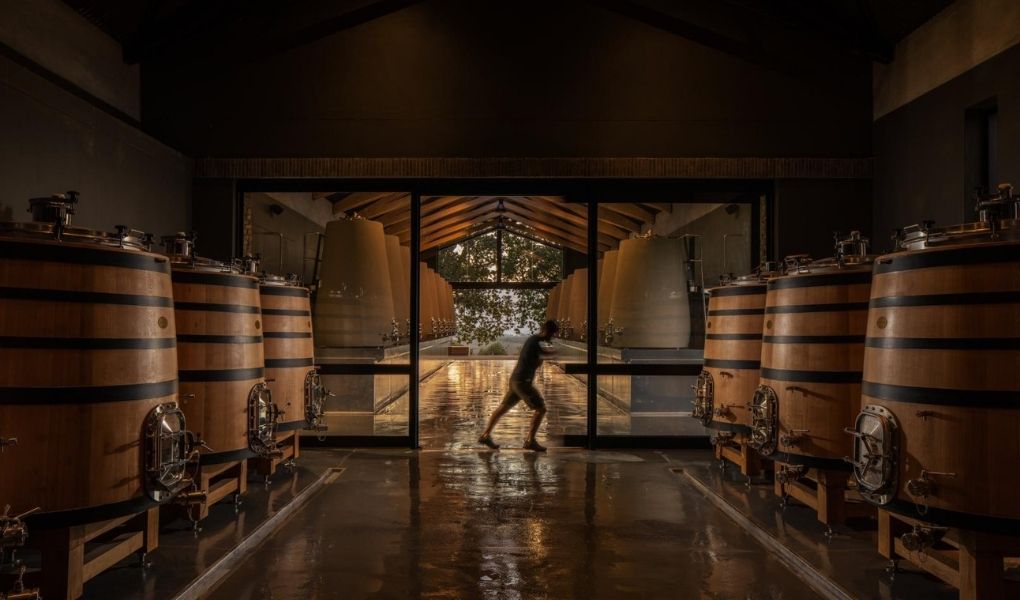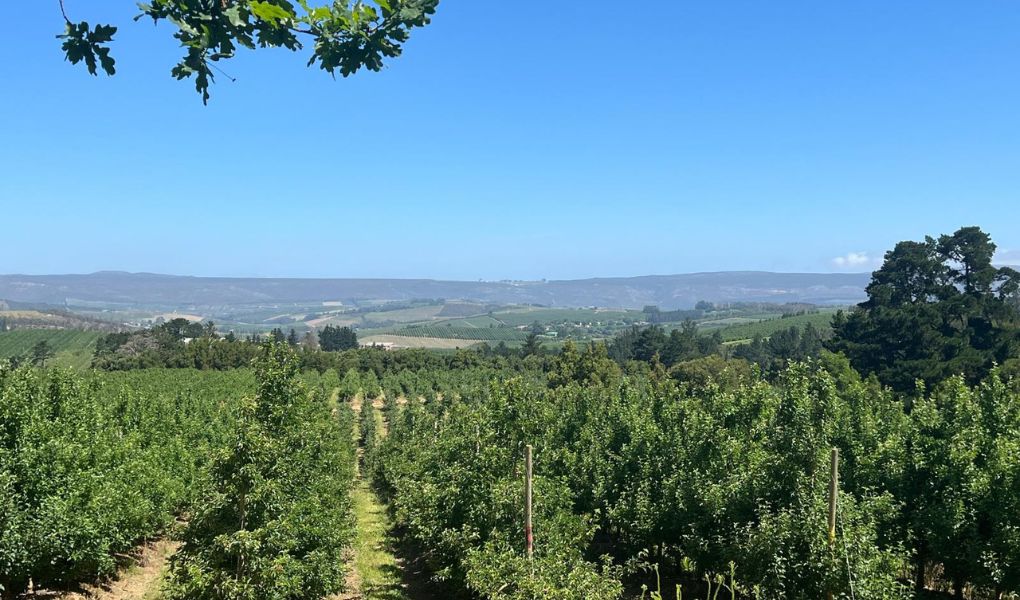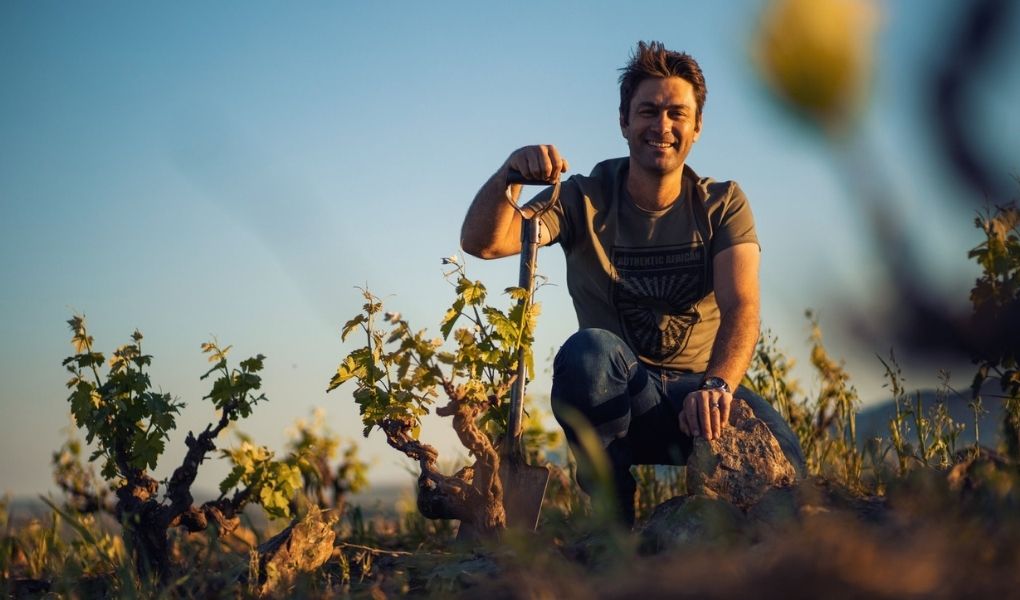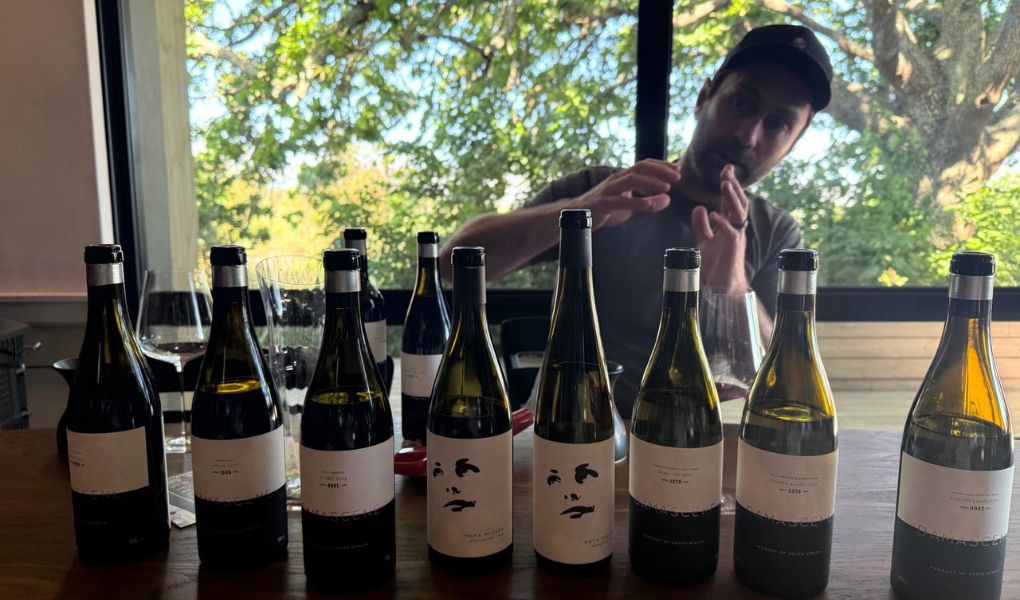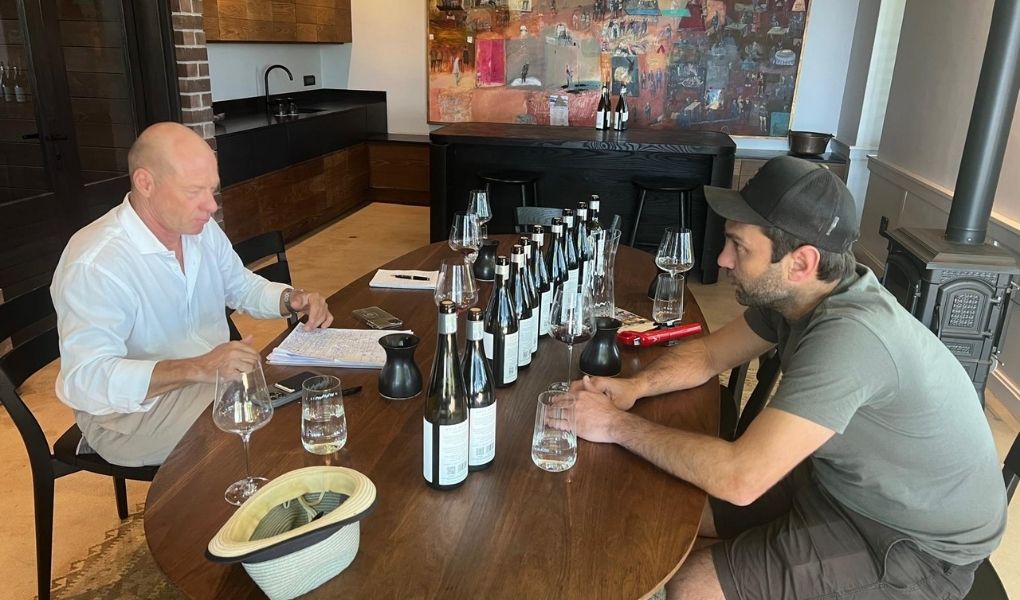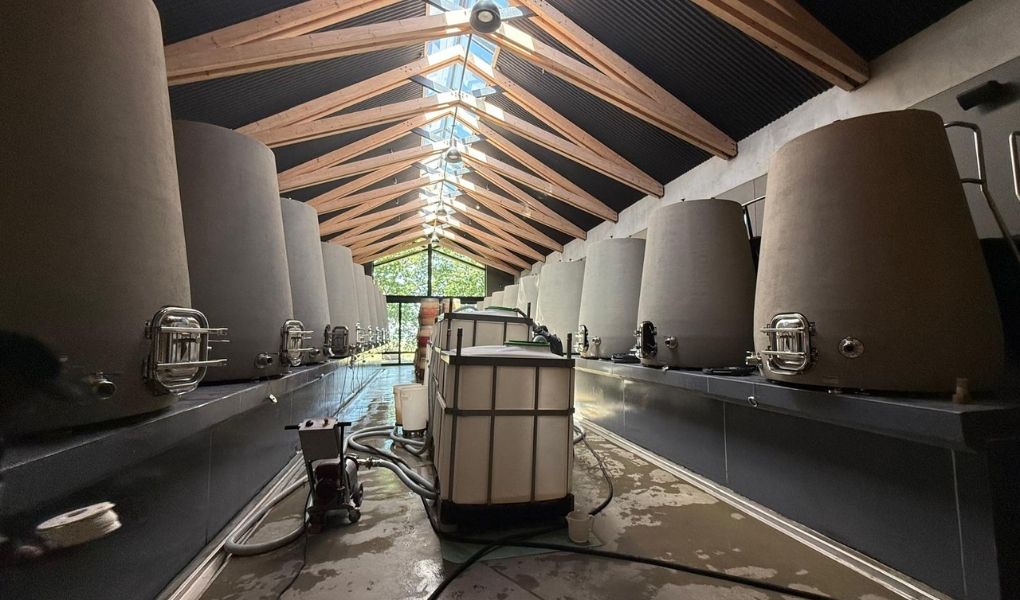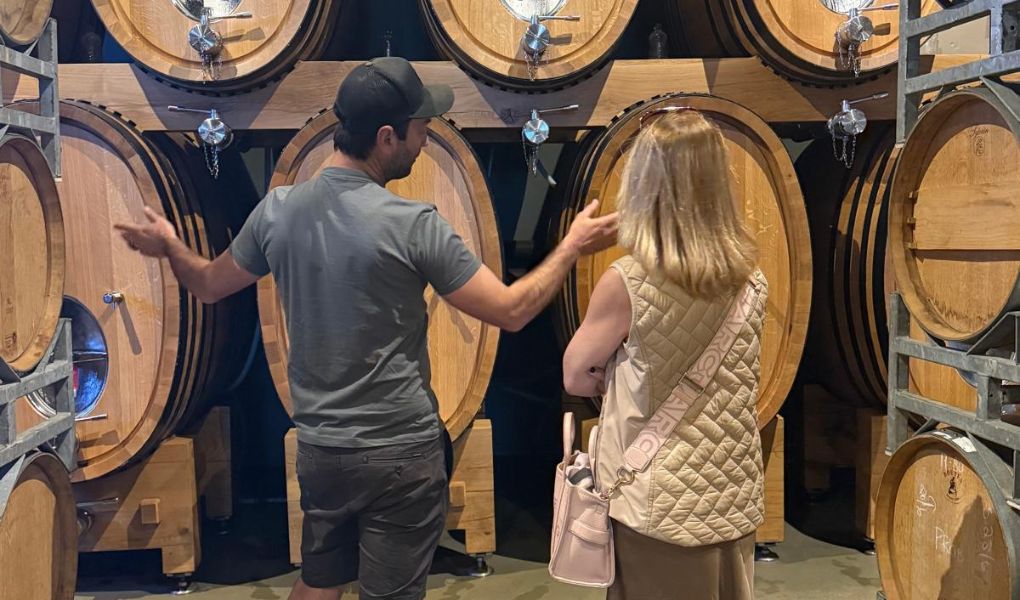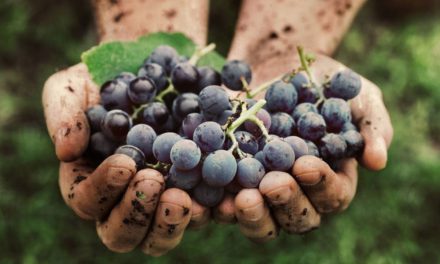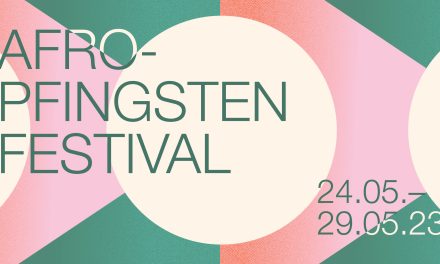Discover exceptional terroir wines
Article by Karin Wild
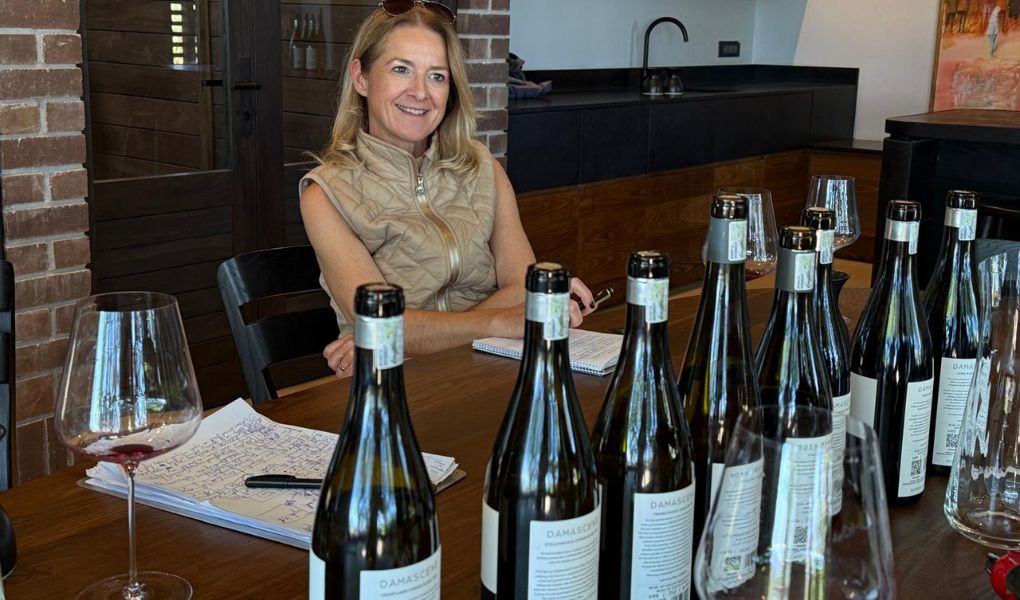
Back from South Africa, I am delighted to tell you about my impressive visit to Damascene. This special winery does not tell marketing stories, but the stories of its soils and vines – and creates wines that reflect the terroir in every nuance.
Passion, excellence and sustainability
Damascene stands for the perfect symbiosis of man, nature and top wines. The two founders, David Curl and Jean Smit, have a shared vision that is characterised by three passions: the pursuit of excellence, curiosity for the undiscovered and the desire to preserve nature through sustainable agriculture. Their guiding principle, ‘Less Cult, More Cultivation’, sums this up perfectly.
The name Damascene symbolises a unique, transformative moment – a fusion of influences that opens up a new perspective. This is exactly what you can feel in each of their wines.
From orchard to wine farm
David Curl, former owner of Château Gaby in Bordeaux, bought a fruit farm in Elgin in 2010 and transformed it with much love and dedication into today’s Damascene winery. He is supported by Jean Smit, who previously worked at Boekenhoutskloof for almost a decade. Together they began to tell the stories of the South African vineyards through exceptional wines.
A major milestone was the completion of a state-of-the-art 120-tonne cellar in 2020. Today, the small farm in Elgin produces both the wines under the Moya Meaker label and the Damascene wines, which represent the entire Western Cape.
Jean Smit and his wines
On a sunny afternoon, we were warmly welcomed to Elgin by Jean Smit. Jean has gained experience all over the world – from the Côte Rôtie in France to the Russian River Valley in California. With Damascene, he is realising his vision of creating wines that not only taste good, but actually tell the story of their origin.
I was deeply impressed by Jean’s passion and his almost obsessive pursuit of perfection. His love for the soil and the vines is palpable in every word and is evident in every sip of his wines.
White wines: elegance and clarity
The white wines from Damascene epitomise elegance and naturalness. Jean deliberately avoids malolactic fermentation in order to preserve the fresh and structured characteristics of the wines. The Chenin Blanc from the Swartland is particularly impressive, with its salty and straightforward flavour that gets to the heart of the terroir. This contrasts with the Chenin Blanc from Stellenbosch, which is fruitier and full of stone fruit flavours. Both impressively demonstrate the diversity of South Africa.
Another highlight is the Sémillon from Franschhoek, which is made from 80 to 90-year-old vines. The combination of white peach, floral notes and a chalky texture makes it a prime example of this variety. Its balance of tannins and acidity is harmonious and lively at the same time.
Three Syrah, three terroirs
The Syrahs from Damascene are some of the most impressive wines I have ever tasted. Each of them tells the story of its unique origin. The Stellenbosch Syrah, characterised by granite soils at an altitude of 300 metres, seduces with notes of cloves, Asian spices, white pepper and black tea. The Swartland Syrah, made from slate soils, surprises with a perfumed, violet fragrance and an impressive depth of fruit. The Cederberg Syrah from an altitude of 1,000 metres tells the story of its extreme climate with dark fruit, black cherries and the elegance of fynbos.
Cabernet Franc, Cabernet Sauvignon and Pinot Noir
In addition to the Syrahs, the impressive Damascene portfolio also includes Cabernet Franc, Cabernet Sauvignon and Pinot Noir. The Cabernet Franc delights with a fine rose fragrance that combines with herbs and fennel notes. The Cabernet Sauvignon from Helderberg, one of my personal favourites, impresses with notes of cassis and a mineral, graphite-like spiciness.
Under the Moya Meaker label, the Pinot Noir is impressive, characterised by rose aromas, lemon zest and beautiful fruit. Its lightness and elegance are reminiscent of a ballet dancer – and that with just 13% alcohol.
Top ratings and international recognition
Damascene has already found its place among South Africa’s best wine estates. Robert Parker awards consistently high ratings of between 93 and 97 points. In 2023, Tim Atkin’s wine estate was awarded the prestigious SA First Growth status – an honour that only a few wine estates receive.
Taste Damascene in Wädenswil
I kindly invite you to discover these exceptional wines in person on Saturday, 30 November 2024, in Wädenswil. If you can’t be there, you can enjoy the 6-wine Degu set for CHF 189 in the comfort of your own home. Let yourself be inspired by the quality of these wines.
Conclusion: wines that tell stories
Damascene combines excellence, passion and the pure essence of the South African terroir. These wines are not to be missed – whether at our tasting or as part of your next special moment.
Best regards,
Your Karin

